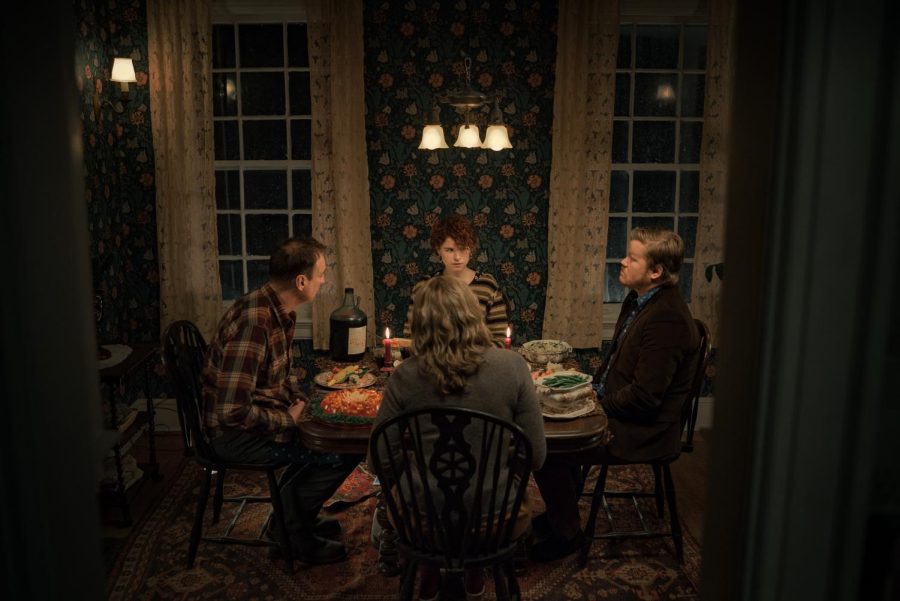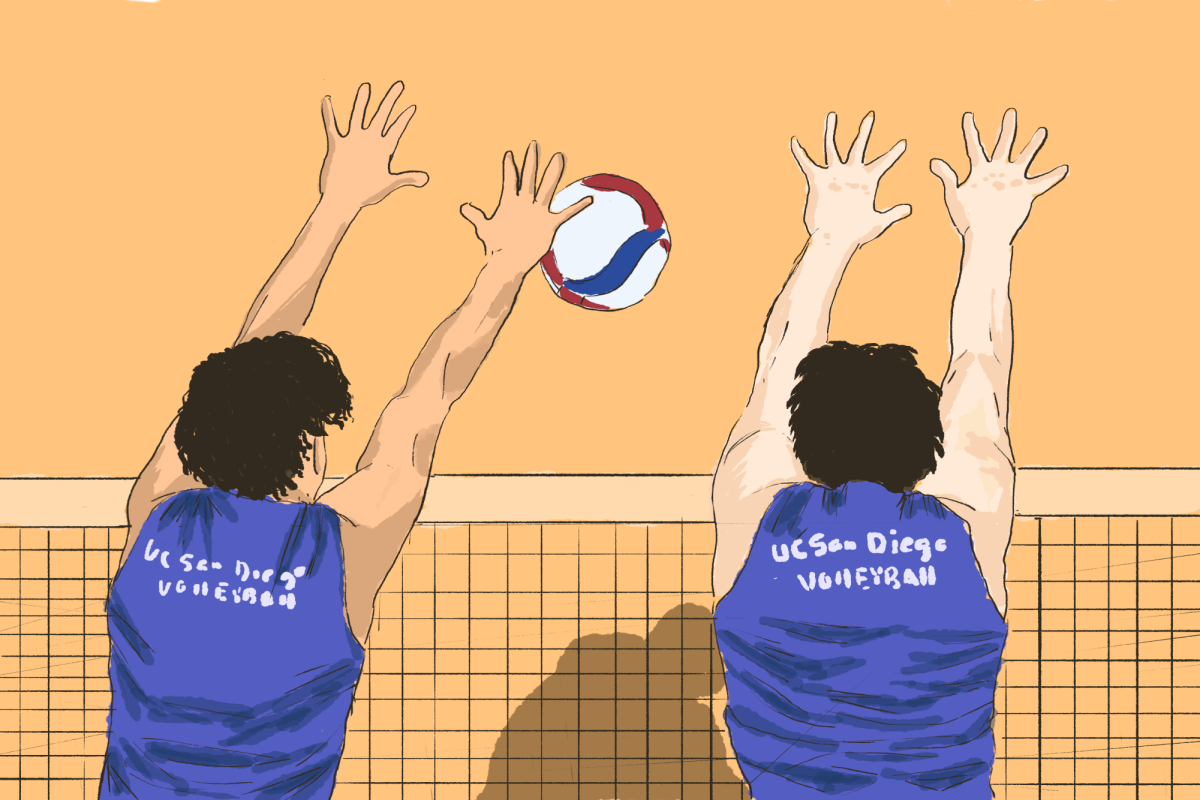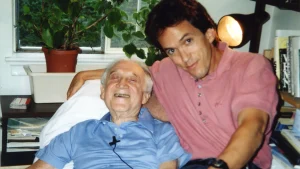Head-to-Head: “I’m Thinking of Ending Things”
Oct 11, 2020
Arts and Entertainment takes on a new debate over Charlie Kaufman’s “I’m Thinking of Ending Things”: Is it a hit, or is the television screen the only thing that’s ending the titular film?
It’s a Hit
TW: Mentions of Suicide
Growing up alongside an ever-expanding catalogue of media can be both overwhelming and comforting. The poems, essays, books, paintings, photographs, television shows, and films that we surround ourselves with are molded into sentience when combined with our own thoughts and experiences. They act as interwoven frames of reference for how we should continue existing in the world. As our experiences shape and prune the very anatomies of our brain matter, this accumulation of art evolves into that of a coping mechanism as it allows individualistic escapism from the otherwise unbearable. This is especially potent in childhood, and if never confronted, the consumed media burrows itself securely within our consciousness until we have no choice but to live it as our own reality. This brings me to the question: How do the coping mechanisms of a lonely childhood manifest in adulthood? In Charlie Kaufman’s latest film, “I’m Thinking of Ending Things,” we see a deeply personal, yet surprisingly universal externalization of just that.
This film of somber fantasy schema was released just this year, and with every rewatch, the depth of isolation feels increasingly accurate. Paced by the daily routine of a high school janitor, and a simple story of a young woman considering breaking up with her boyfriend, the two tracks of the film are cross-cut and continually united by the titular sentence “I’m Thinking of Ending Things.” The intentionally proposed end of a romantic relationship merges with the intentionally proposed end of one man’s life. The janitor’s idiosyncrasies and fantasies become a melancholic exploration of how ending a life so fraught with fictitious lives makes it nearly impossible to conjure a true end, even when it is what is most desired. Moving through the film felt like the world’s most tragic scavenger hunt, sifting through famous works by famous folks, attempting to separate reference from real. The characters are wholly human and disastrous, purposefully messy and inconsistent, extensions of one singular man’s ailing psyche of snow, musicals, ice cream, and pigs. And with a film so focused on ends, it did not disappoint with its own. Rousing, theatrical, and absurd, there is a profound emotional undercurrent that culminates in an applauded stage solo, everything coming together. Then, the end. Not a film of comfort, but of catharsis.
If you ever need to reflect on your own loneliness and reliance on the consumption of media in an unnerving, yet familiar way, “I’m Thinking of Ending Things” is the most dynamic place for such exploration. Run away to a blurry, greyed mindscape of floralled wallpaper and high school theatre, and battle your own consciousness with someone else’s words.
— Marina Lee, Contributing Writer
End It
As a perpetually tired college student, I look forward to sleeping every night, which is why Charlie Kaufman is one of my favorite directors — his films bring me dreams and I don’t even have to close my eyes. Critically acclaimed screenwriter, producer, writer, director, and novelist, Kaufman is responsible for gifting this decade with some of the most iconic and critically revered films in modern cinema history, including “Being John Malkovich” (1999), “Synecdoche, New York” (2008) and finally, “Eternal Sunshine of the Spotless Mind” (2004) which happens to be my personal favorite. His film’s utilize the human psyche as metaphors in order to self-describe the complexities present within collective life experiences of love, heartbreak, and identity.
Kaufman is an undoubtedly talented absurdist filmmaker who I admire as an artist, which is why I was so disappointed with his latest film “I’m Thinking of Ending Things.” Now, don’t get me wrong; the film captivated me when I viewed it for the first time, and I enjoyed it even more on the second watch when I was able to piece together the puzzle that was the meaning of the titular sentence and the bizarre dreamscapes. The decision to conclude the film with Jake’s repetitive, unfulfilled life unceremoniously snuffed out under the white, shapeless blob of a lone car covered in snow, was a stark and brilliant juxtaposition to the insanity that was the previous two hours of the film. “I’m Thinking of Ending Things” plays on all of Kaufman’s strong suits, which is exactly the problem. The winding philosophical monologues, the physical manifestation of his subconscious, and the abstract shots that play on the themes of isolation and disorientation all feel too forced as trademarks of his style. Clarity became lost between its novel source, written by Iain Reid, and Kaufman’s film adaptation. Granted, book-to-film adaptations are notoriously difficult to get right due to the time and resource constraints between the two, but Kaufman sacrificed accuracy of the original writing in the name of his style.
Some defenders of the adaptation have a tendency to dismiss constructive arguments towards the film by claiming that its critiquers simply “do not understand” Kaufman’s genius, and to that, I reply that I don’t feel indifferent towards the film because I “don’t get it”; I feel neutral towards it because others don’t. This film is one of the director’s more pretentious projects, and it feels inaccessible to a large demographic of viewers. The reason why Kaufman’s films have attracted the amount of traction that they did in the past decade was because of his ability to understand the human experience and manifest them for anybody to recognize. “I’m Thinking of Ending Things” does not have the same relatability. The complexities of the film’s metaphors overshadow the actual meaning behind them. “I’m Thinking of Ending Things” has two underlying meanings behind its titular name: it refers to Jake’s forgettable life, and to the reaction from its viewers towards the television screen as we get slowly dragged along through two confusing hours of snow and a single, old, white man regretting his life.
— Hemmy Chun, A&E Editor
Image courtesy of The Suffolk Journal.














